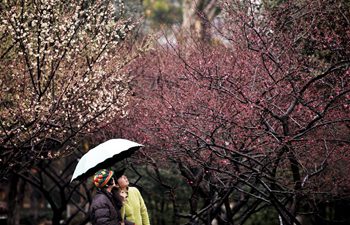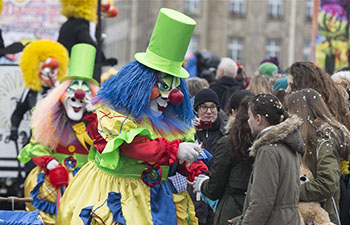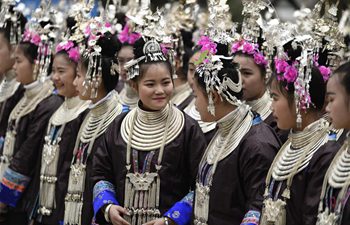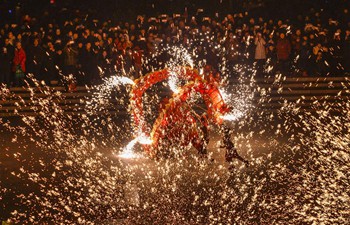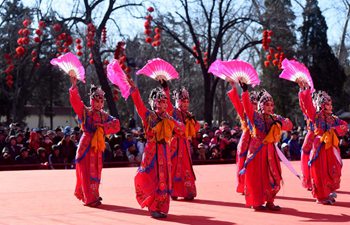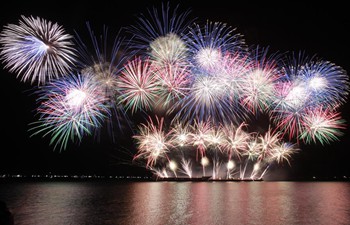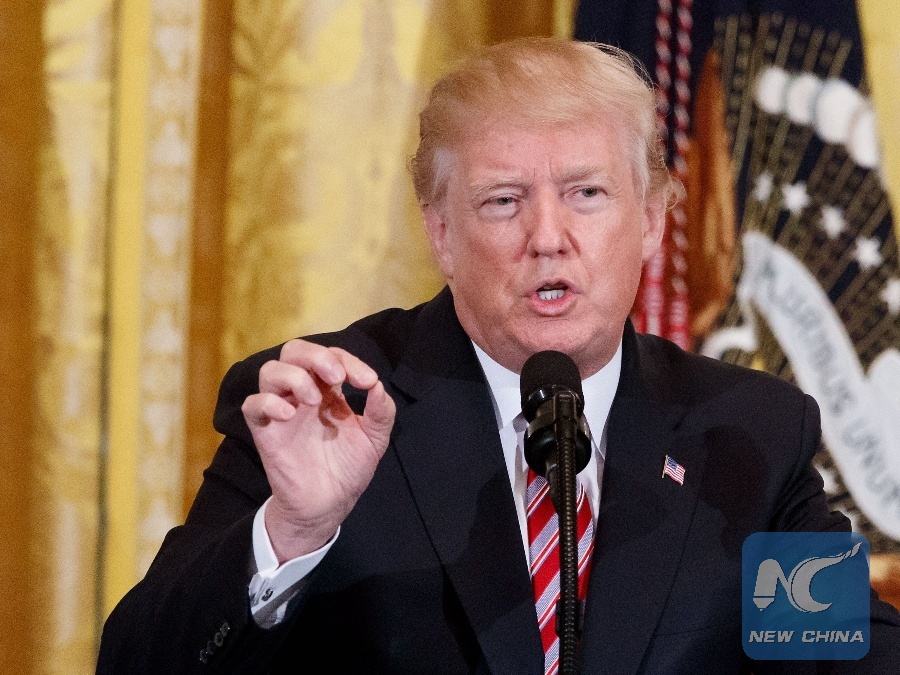
U.S. President Donald Trump speaks during a National African American History Month reception at the White House in Washington D.C., the United States, Feb. 13, 2018. (Xinhua/Ting Shen)
WASHINGTON, Feb. 21 (Xinhua) -- U.S. President Donald Trump promised strong background checks and mental health screenings for gun buyers after hearing pleas from survivors of the recent Florida school shooting and affected families on Wednesday.
He also suggested the possibility of arming teachers during the televised White House meeting, which came as students staged street protests across the country to demand stricter gun laws following a student assault that left 17 dead.
OPEN TO IDEAS
"We're going to be very strong on background checks ... very strong on the mental health," Trump told students and family members affected by last week's high school massacre in Florida and other past mass shootings.
The president suggested that some educators could be trained in the use of firearms to deter potential shooters.
"It's called concealed carry," Trump said. "Where a teacher would have a concealed gun on them, they would go for special training and they would be there, and you would no longer have a gun-free zone."
"A gun-free zone is, let's go in and let's attack," he said.
"You can't have 100 security guards in the Stoneman Douglas," he said, referring to Marjory Stoneman Douglas High School in Parkland, Florida, where 19-year-old Nikolas Cruz, described as "very sick" by Trump, killed 14 students and three teachers, with an AR-15 style assault rifle last week.
"It would be teachers and coaches," Trump said. He said that if the school's assistant football coach Aaron Feis who shielded students from being shot had a firearm in his locker, he could have shot the shooter instead of running at him.
However, Trump conceded that concealed carry -- carrying a concealed firearm in public -- "only works" with people who are "very adept at using firearms."
Those remarks came a day after Trump said he has recommended that "bump stocks," an accessory that enables semi-automatic weapons to fire hundreds of rounds a minute, be banned.
EMOTIONAL PLEAS
Trump, who appeared open to a wide range of ideas, also heard emotional pleas from those affected by school shootings as they urged the president to take actions to make schools more secured and support additional gun control measures.
"I am a survivor," Julia Cordover, a senior class president at the Florida high school, told Trump. "I was lucky enough to come home from school unlike some of my other class and it's very scary knowing that a lot of people did not have this opportunity to be here."
She pressed the president to ensure that "no person in this world will ever have to go through" such a tragedy again.
Andrew Pollack, whose 18-year-old daughter Meadow was among the 17 victims of the Florida shooting, told the event that it was far too easy for people such as Cruz to get their hands on guns.
"I can't get on a plane with a bottle of water," Pollack said. "But some animal can walk into a school and kill our children."
"We as a country failed our children," the anguished father stressed as he proposed a fix to the school first.
Samuel Zeif, who lost a best friend when Cruz opened fire at the Florida high school, said that he was here to use his voice because his friend can't.
Zeif, 18, said that he fully respects the Second Amendment that protects gun ownership in the country, while questioning why Cruz could be permitted to buy an assault rifle, which he called a "weapon of war."
Besides pleas inside the White House, hundreds of protesters gathered outside it Wednesday afternoon to call for restrictions on guns. Beyond Washington D.C., students across the country took to the streets to demand safer schools and an end to gun violence.








